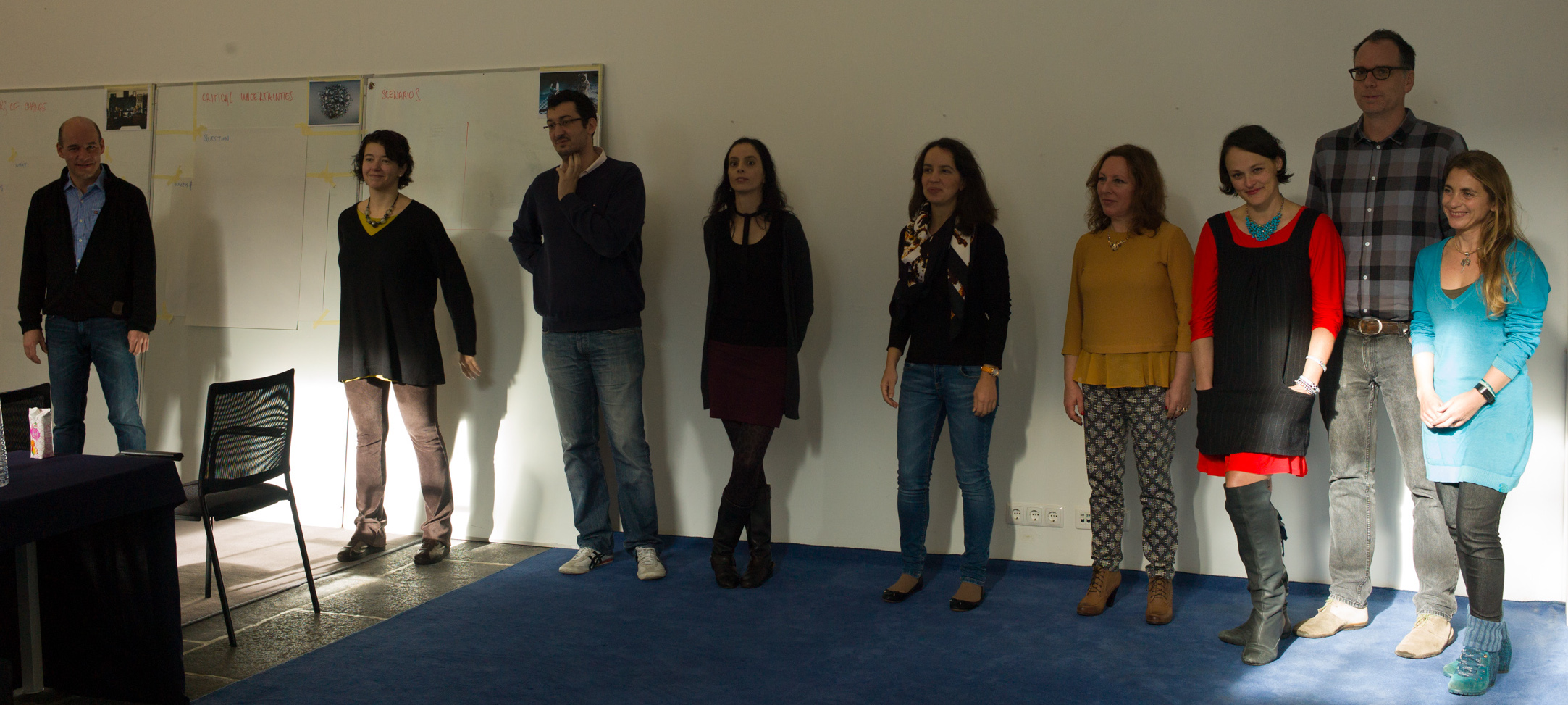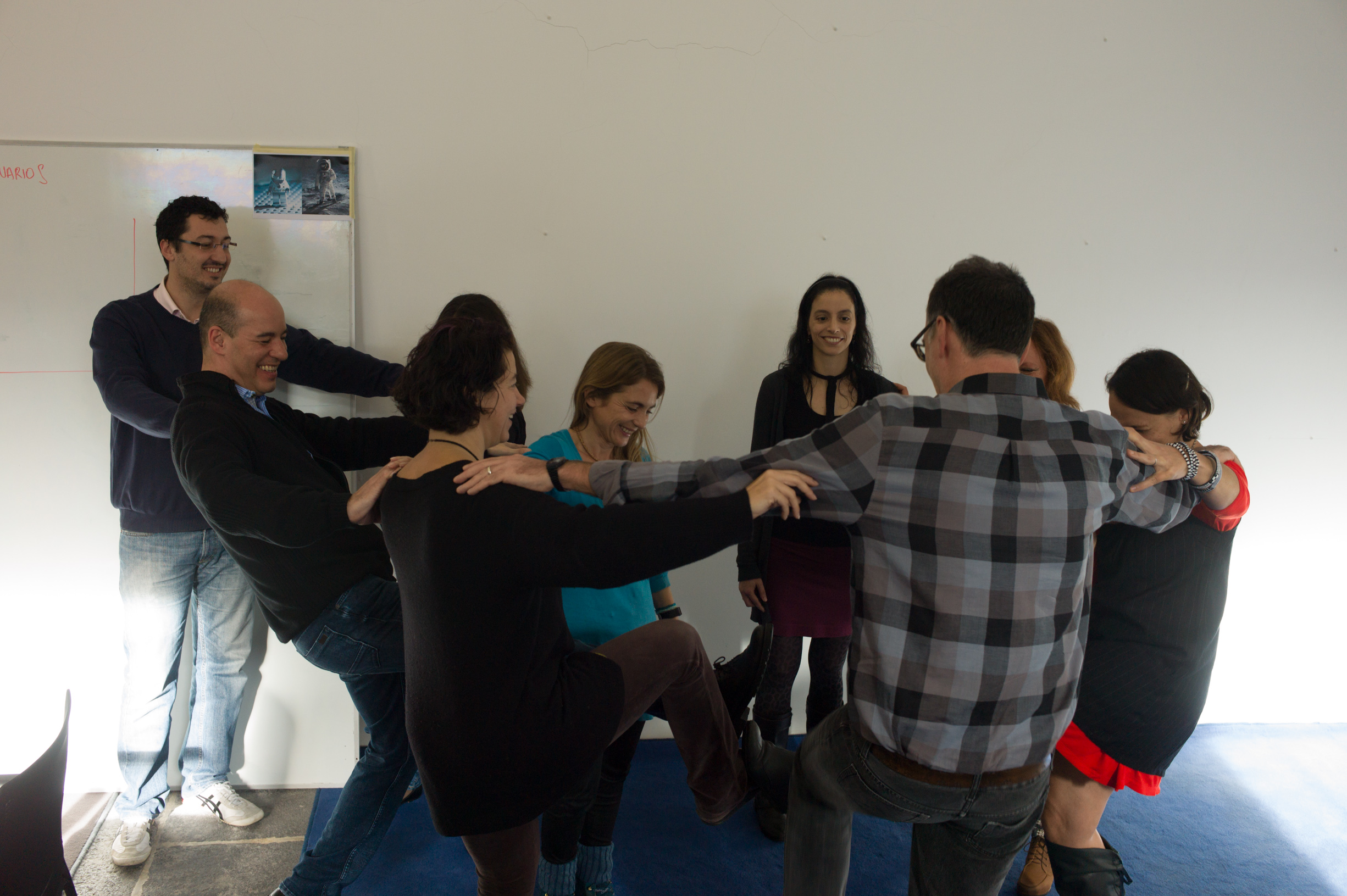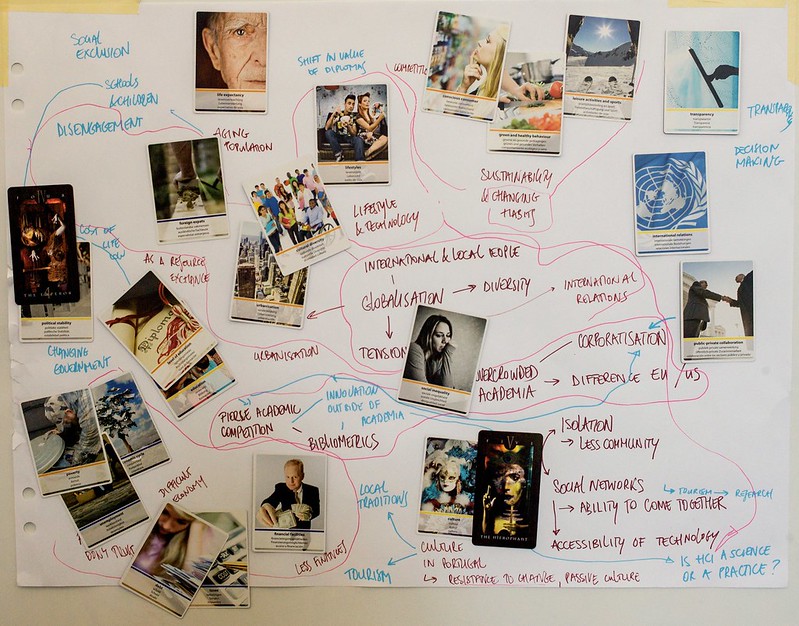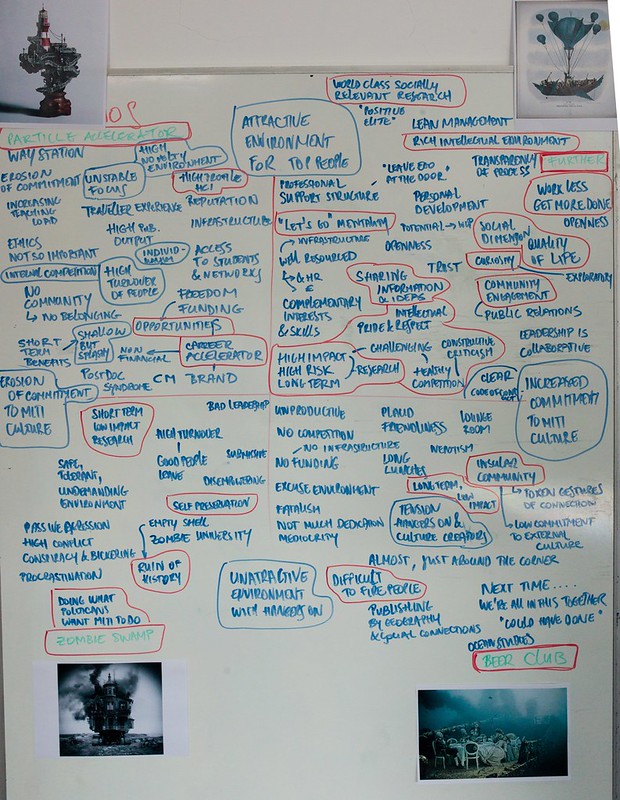Scenario Building at M-ITI
A scenario building workshop with nine researchers from Madeira Interactive Technologies Institute, 20140116-17.
Why should a research institute exist?
In this two-day workshop the participants asked themselves what are possible futures for an academic institution such as M-ITI and what might be their “raison d'être” in the years to come. At present, research institutions are stretched between fierce competition, bureaucratic inertia, job (in)security and a strong desire to create a culture of sharing and innovation - a culture from which transformative experiences can emerge, enabling people to live the best possible lives in harmony with their environments. What is M-ITI like in this context, how will European Research Area (ERA) develop and what impact will its future have on M-ITI? What is the profile of the person who could become the interface between M-ITI and ERA? How would this person work in the existing M-ITI context and team?
M-ITI website
EraChair website
The core question for the participants of the workshop was “Why should M-ITI exist?”
 Sociometric spread: How long have you been working at M-ITI? Left (longest) → right (Shortest)
Sociometric spread: How long have you been working at M-ITI? Left (longest) → right (Shortest)
Key Factors
- Availability of resources (financial, infrastructure…)
- Attractive environment for top people committed to M-ITI culture
- Clarity of research scope
- Close & fertile relationships with wider networks (partners, university, publishing in top conferences)
- Public outreach (communication, relevance, perception…)
Macro Trends
A selection from identified macro trends related to the scoping question “why should research institutes exist?”:
- Globalisation & international collaboration (diversity / inequality)
- Sustainability and challenging degradation of environment, pollution and energy security
- Innovation outside of academia, citizen science
- Behavioural change towards more sustainable lifestyles, through technology
- Growing communities of practice around emerging technologies (maker cultures, DIY-tech dev…)
- Social isolation (including aging)
- Political inertia and the rise of e-democracy
- Permanent economic crisis
- Innovation in Sensing technologies
Critical Uncertainties
The participants found the following trends and factors extremely important for the core question:
- Commitment to M-ITI Culture
- Relationships with wider networks
- Globalisation (both positive and negative aspects, such as diversity and inequality)
- Publishing in top HCI conferences
- Providing an attractive environment for top people
- Innovation outside of academia
- Emerging communities of practice around technology
- Sustainability and behavioural change
Scenarios
Two scenario axes (critical uncertainties):
- Is the research institute an attractive environment for top researchers?
- How committed are these researchers to (developing) the organisational culture of the institute?
When plotted as the two scenario axes, the following possible futures were revealed:
NOTE: The workshop focused specifically on M-ITI, but the scenarios have been written as possible futures for research institutes in general.
Debrief
As part of this workshop we planned a formal debrief at the M-ITI all hands meeting five days after the workshop. The meeting began with the summary of the workshop and continued with a discussion about the next steps (creating a cafe, a twitter stream, physical exercises, research seminars, a retreat at the end of the semester, sharing the process with ERAChair candidates, etc.)
At FoAM we had a more informal Erachair debrief about the process
 Sociometric exercise: touch the person with whom you work most closely
Sociometric exercise: touch the person with whom you work most closely
Back to scenarios

